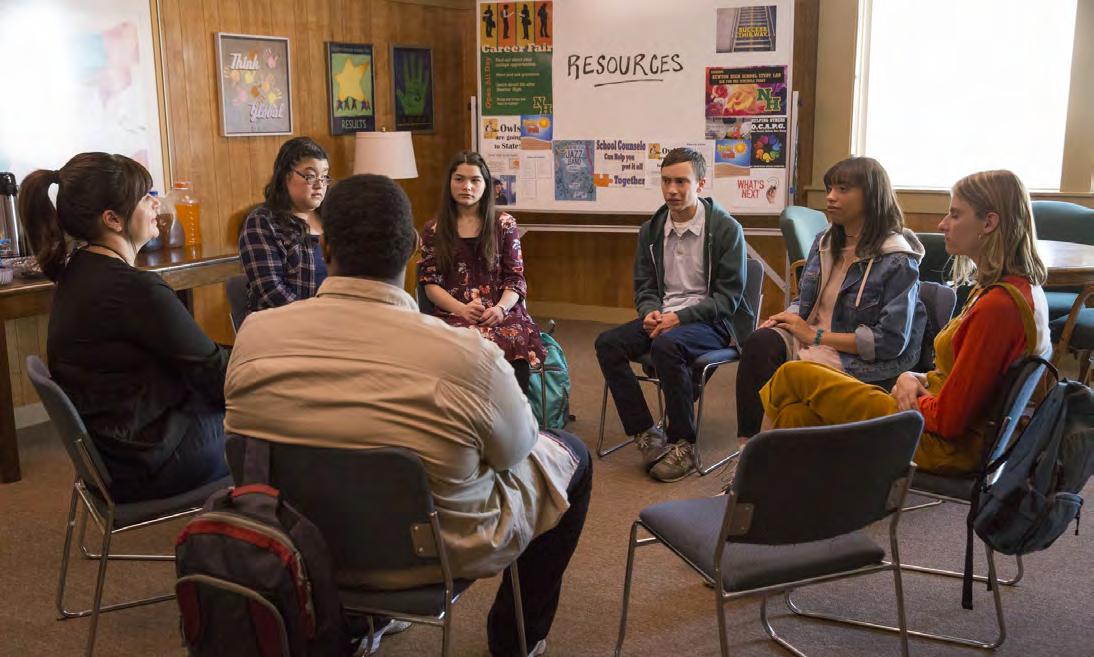
4 minute read
Preparing for Adulthood + QUIZ
Issy Gilchrist-Hall

Advertisement
Leaving school, let’s face it. It’s not going to be easy unless you’re planning on staying at home, partying and all that fun stuf; you haven’t got much to worry about then. When the idea of leaving school is at the forefront of our minds, it’s easy to forget how difcult it might be. When a group of senior students at Wellington High School were frst asked the question, “On a scale of 1 - 10, how prepared are you to leave school”, 33.3% of students said that they were at around an 8, claiming that they’re pretty prepared. However, when this question was broken down, efectively asking students what they didn’t know, their answers altered. The survey results showed that the percentage of people who know what a kiwi saver is is about 8.3% more than those who currently have jobs. The survey indicates that there is at least an understanding of how budgeting and planning for your future works; however only 20.8% of students, who took this survey, knew how to pay bills. This is only looking at the money side of things. I believe that there are more ‘practical’ or hands on things to worry about, so I asked. It turns out 45.8% of people don’t do their own laundry and out of that percentage, 8.3% of people have never used a washing machine. And the same goes for cooking; only 58.4% of students regularly cook meals. Let me tell you something, this is not going to fy in the real world. So why don’t we know how to do these things? Let’s face it, as we get older we take on more responsibility for our own cooking and cleaning with less of our parents or caregivers’ help. It is a big part of managing ourselves, gaining commitment, and becoming independent in our own homes. This means the only people we blame for not developing life skills is ourselves. Be that as it may, my question regarding why we don’t know basic things like having an understanding of tax, how to pay bills and a simple idea on how budgeting and money works is why is it not a compulsory part of the high school curriculum? Not just for the people who choose those subjects. Granted, schools allow us the opportunity to learn these things, but only if we decide to take a subject such as business studies, accounting or economics, which a majority of students do not take. These subjects include a lot of valuable skills like managing taxes and budgeting, but many students do not understand why it is benefcial or necessary for their future. Instead most students have to fnd out how to pay bills, do their taxes, organize and understand their kiwi saver and budget, as soon as they leave school and get their frst job.

But to be very honest, these aren’t our real concerns. Sure they are incredibly important things, especially to adults who forget what it’s like to leave home for the frst time. Our concerns are usually regarding our families, like “what if I need a hug from my mum”, relying on oneself for everything, and dealing with mental health sturggles pretty much alone, failing, fear of losing support and not being organised enough to manage living on our own. Luckily there are some great support networks around for wherever you end up. Many universities in New Zealand have ‘Student Associations’, which manage events, clubs, societies, student representation and, most importantly, create support networks for students. Suppose you were to end up in Dunedin at Otago, your student association is called OUSA, if you were to stay in Wellington, Vic is VUWSA and Massy is MUSA. If you were to go to Auckland University, it is AUSO. You can easily fnd information on students association by searching up what university you’re going to and ‘students association’ at the end of it. It will take you to websites or Facebook pages regarding your university, and this is where you can fnd support on many things, like budgeting, fatting, academics and general support from “people who get it”. Alongside student associations, the Ministry of Education has a great website with links to pages created to support tertiary students. There are so many sites on the internet that cater to your needs around support once you leave school, which is a lot more than what our parents had when they were leaving secondary school.

Overall, leaving school is extremely difcult for everyone. No matter what we go on to do, where we go or who we do it with. It’s hard. Leaving a 13-year routine to go out into the real world where we’re responsible for ourselves, feeling like those 13 years were wasted because you have no idea what you’re doing. You know what, this is all okay. We’re all in the same boat.











